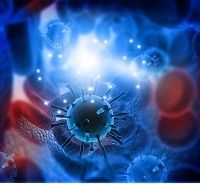Article
Multiple Sclerosis, Crohn's Drug Used in HIV Targeted Therapy
Author(s):
Natalizumab, a drug typically used to treat multiple sclerosis and Crohn's disease, has been shown to be effective in treating animal models of HIV.

Multiple sclerosis (MS) and Crohn’s disease drug Tysabri (Biogen Idec Inc.) can be used to fight against human immunodeficiency virus (HIV), according to research published in PLOS Pathogens.
Researchers from Boston College treated 4 monkey models of HIV with high plasma virus and central nervous system injury with once weekly natalizumab (sold under the brand name Tysabri) initiated on 28 days post-infection. After 3 weeks, the drug reversed the lesions present on the central nervous system. Additionally, the virus track to the brain was blocked in monocytes and macrophages. This was significant, the researchers explained, because those cells collect in “viral reserves” which are associated with comorbidities that HIV patients sometimes have.
“We actually stopped all traffic and showed that if you physically block monocytes and macrophages, the virus does not enter the brain,” senior author Ken Williams, PhD said in a press release. “And even if full and major lesions of the central nervous system are present, application of the antibody can heal that damage and eliminate the virus, underscoring the necessity for continued traffic of cells to the central nervous system and the gut to maintain infection and lesions.”
The researchers also conducted a parallel trial over 3 weeks which measured the time of experimental infection. Natalizumab completed blocked the monocyte and macrophage traveling between the brain and the gut in animal models of HIV. The researchers explained that this research confirmed the role that monocytes play in preparing the central nervous system with virus and leukocytes. Both of these are early warning signs of a myriad of potential comorbidities, the authors said.
“So our question was if we can do that with HIV, does it stop virus replication in the brain, stop seeding and does it reverse injury?” continued Williams, who said that a “cure” for HIV or AIDS would essentially mean a destruction of these viral reservoirs. “The answer to each of those questions, we now know, is ‘yes’.”
Between these 2 studies, the investigators believe there are potential treatment regimens for HIV patients which include antibody medications in combination with anti retroviral drugs. This combination would simultaneously target reservoirs in the brain and the guy, while many current therapies target lymphoid organs to contain infection, Williams explained.
More studies involving humans are scheduled to begin in the spring, also to be lead by Williams. The $40 million clinical trial will be funded by the National Institute of Allergy and Infectious Disease and involve researchers from Massachusetts General Hospital. The research team will aim to evaluate whether treatment with a statin can reduce elevated risk of cardiovascular disease in HIV-positive patients.




